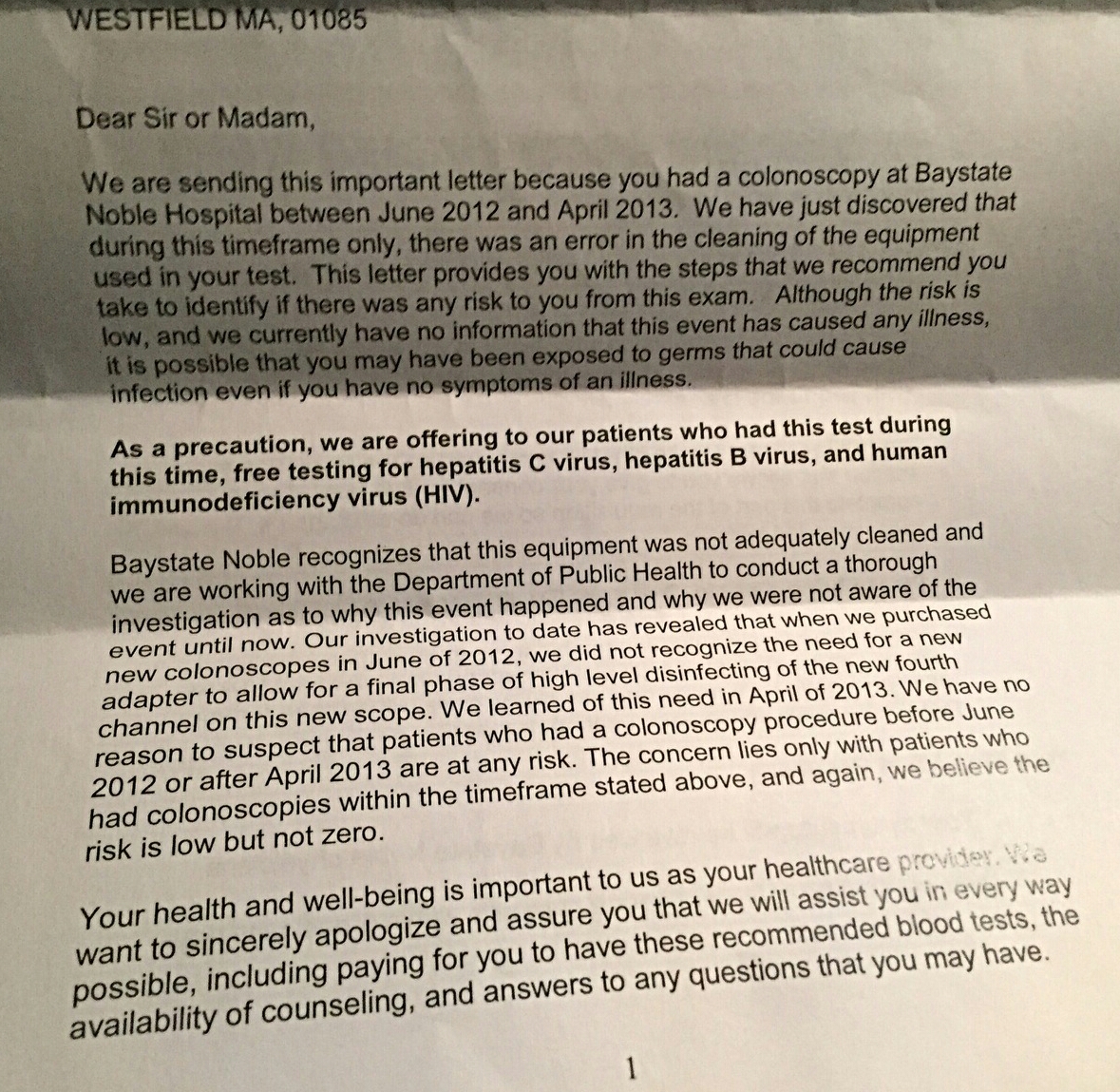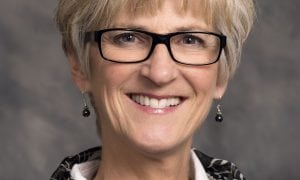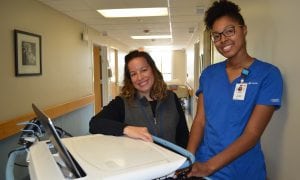WESTFIELD – Baystate Noble Hospital is assuring the community that patient safety is top priority after announcing some colonoscopy patients could be at risk for Hepatitis B and C, and HIV.
Patients who had a colonoscopy between June 2012 – April 2013 were sent letters via FedEx this week alerting them of the risk. The letter states “there was an error in the cleaning of the equipment used in your test.”
Medical Director Dr. Stanley Strzempko said the error was corrected in April 2013 and the hospital was informed of the possible risks last month from the Department of Public Health (DPH).
“The DPH came in and asked us to review the patients seen with the then-new colonoscope,” said Strzempko. “That look back allowed us to see that we got up to speed in 2013.”
The colonoscopes were purchased in June 2012 and staff were unaware that an adapter was needed to ensure proper disinfecting until April 2013, which is why only patients during this period are at risk and being notified.
Due to a failure in training, the disinfection of those endoscopes between procedures did not adequately expose the devices’ single water irrigation channel to high-level disinfection during the last phase of cleaning. This is similar to other, more recen, problems with sterilization encountered across the country with endoscopes used for other procedures.
Strzempko said 293 patients were identified for slight risk. He said at that time the equipment was overseen by leadership no longer in place, and the hospital leadership today is taking its responsibility to patients seriously.
“I’m confident there was no harm here,” said Strzempko. “We have learned from this to make a great hospital even stronger.”
Baystate Noble President Ronald Bryant apologized to patients.
“On behalf of Baystate Noble Hospital and Baystate Health, I apologize to all those affected by this failure in safety,” said Bryant. “The safety of our patients is our very highest priority, and we take full responsibility for our part in allowing these patients to have potentially received unsafe care.”.
In April 2013 Noble received new equipment and training that enabled it to appropriately disinfect the endoscopes involved. At the time, the hospital team did not recognize the potential risk of harm to patients who had colonoscopies between June 2012 and April 2013. The issue was then considered closed.
Strzempko said the hospital will track all of the notified patients who come in for testing and will reach out again to those who do not respond to the letter.
“I’m hoping within a few weeks we will have had some kind of direct contact with all 293 patients,” he said.
“We appreciate the partnership of the Department of Public Health in identifying this problem and responding to it,” said Strzempko. “We’re working closely with the primary care providers of those affected to ensure that they receive screening, timely access to results, and any other support we can provide.”
Dr. Sarah Haessler, an infectious-disease physician and Baystate’s head epidemiologist, said the risk of infection from the colonoscopes is quite low.
“Due to the function of the water irrigation channel and the phase of disinfection at which the failure occurred, the risk to patients is very low,” she said. “That risk is not zero, so we’re taking the necessary steps to address these issues and provide patients with the resources they need.”
In 2015 Baystate Health convened a multidisciplinary team to assess the safety of endoscopes and disinfection processes throughout the organization, in response to widespread national concern about disinfection issues with endoscopes. This team continues its work to ensure that endoscopy equipment and protocols meet the highest standards for safety and quality.
The majority of the patients identified live in the greater Westfield area.
Patients have been told that they should be screened for hepatitis B, hepatitis C and HIV. Spokesman Benjamin Craft says Baystate will offer screenings for free.








